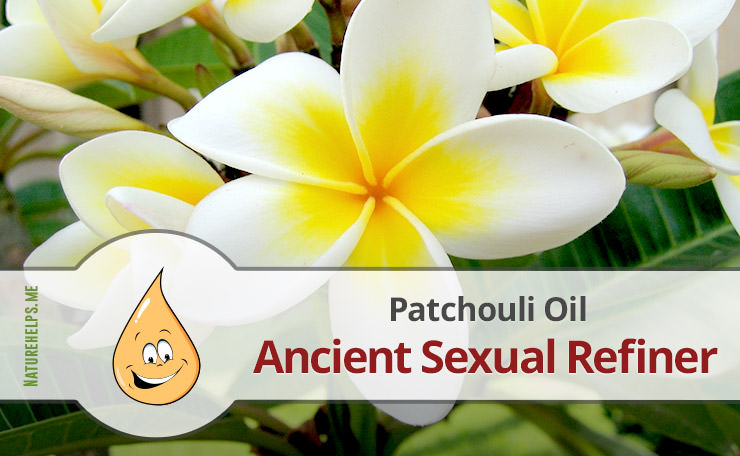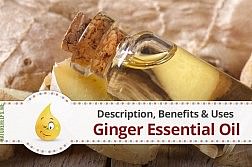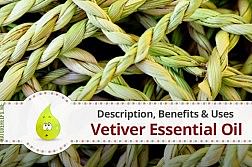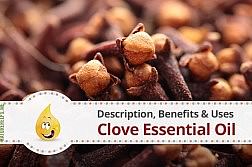Patchouli essential oil is the phenomenal oil with extraordinary health benefits. It is often neglected and fails to attract the aroma lovers as many believe that it has a strong misty fragrance.
Belongs to Family Labiatae (Pogostemon patchouli). Patchouli plant is a herbaceous shrub native to Malaysia. Today, it’s cultivated in China, Malaysia, India, Indonesia, and the Philippines, but also grows in South America and other tropical regions like Hawaii. Patchouli essential oil is obtained from the leaves by steaming. The finished oil has a mustard-green color and very thick consistency.
Since ancient times it was believed that the essential oil of patchouli attracts wealth, business success and provides stability. The exotic smell of fragrant plants with large leaves and white flowers with purple specks came from India in the XIX century with fabrics which merchants brought. Warm a little heavy smell frightened mole and the gave an aura of mystery to fabric.
Romans used it as an appetite stimulant, while in Ancient Egypt, it was said that Pharaoh Tutankhamun – also known as King Tut – arranged to have 10 gallons of patchouli oil buried with him in his tomb.
Patchouli oil has long been used in traditional Asian medicine, especially in Malaysia, China, and Japan. It is used to treat skin and hair problems, such as dermatitis, eczema, acne, dry chapped skin, dandruff, and oily scalp.
Benefits of Patchouli Essential Oil for Health
- aphrodisiac
- antiseptic
- antipyretic
- anti-inflammatory
- deodorant
- diuretic
- antifungal
- astringent
- tonic
- soothing
- regenerating
Effects of patchouli oil on psycho-emotional sphere
- Powerful erotic stimulant.
- It activates mental and emotional processes.
- Acts as antidepressant (prevents the symptoms of anxiety and stress-related diseases)
Effects of patchouli oil on bio-energy field
Patchouli is a lovely scent for meditation. Opens deep, subtle world of analysis and intuition. Projects the light and strength to the sexual chakra, the chakra of love and enlightenment. It eliminates all the aromatic oils vain and shallow, combining the intellectual and volitional qualities, static and dynamic energy of the other centers, their high level of energy increases and the awakening of the inner power (kundalini). When using essential oil of patchouli is born love, duality disappears and subjectivity, there is unlimited due to the high energy matter is spiritualized. Energy aroma of patchouli reveals a need to feel the taste of love and goodness, does not allow for the development of vampirism energy.
Usage of Patchouli Essential Oil in Cosmetology
- Treatment of skin problems.
- Saggy skin chest, abdomen, thighs as a result of dramatic weight loss.
- Eliminates stretch marks and scars on the skin.
- It moisturizes and tightens dry wrinkled skin.
- The perfect tool for hair care: give them strength, shine, elasticity and eliminates dandruff.
Domestic use of patchouli essential oil: perfumes clothing repels moles.
Indications in Usage of Patchouli Oil
- Naturally treats fungal, yeast and bacterial infections.
- Stimulates the nervous system, activates the mental and emotional processes.
- It is used in the treatment of herpes, influenza, herpes zoster.
The most remarkable feature of patchouli oil in effect – tightens skin and reduce any scars, so it is used in cosmetics for problem skin, in particular as a result of sagging drastic weight loss or after pregnancy.
Patchouli oil has the property to reduce the appetite, which allows you to turn it into a set of measures aimed at reducing the weight.
Patchouli essential oil is a natural remedy for diarrhea. It has a pronounced diuretic effect, due to the properties of patchouli oil is used to excess fluid from the tissues, especially in the treatment of cellulite.
In dermatology, the properties of essential oil of patchouli is used to treat eczema, fungal infections, acne, dermatitis.
Blends well with:bergamot, black pepper, cedarwood, chamomile, cinnamon, clary sage, clove, coriander, frankincense, geranium, ginger, grapefruit, jasmine, lavender, lemongrass, litsea cubeba, mandarin, myrrh, neroli, oakmoss, opopanax, orange, rose, sandalwood, vetiver.




